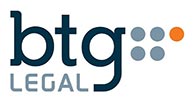INTERNET PLATFORM LIABILITY
The internet has revolutionized the way we interact; however, it has also brought with it a host of problems such as hate speech, terrorist recruitment, fake news, illegal lobbying, and personal data theft. A number of these issues involve the new gatekeepers of the internet, online social media platforms, and their regulation will be at the forefront of legal development in the near future.

The concept that an intermediary is only a neutral pipeline for information is no longer sacrosanct. Germany’s new social media law, Netzwerkdurchsetzungsgesetz, makes platforms liable for the content they carry. In India, the Supreme Court and the government have repeatedly called for the regulation of intermediaries. The Supreme Court has in the past made intermediaries responsible for actively monitoring content to ensure that they are compliant with child and women protection laws.
There are two questions in the context of growing calls for regulation in India:
- Are we moving from a “did-not-know” standard to a “ought-to-have-known” standard, and to what extent is this practical?
- Do we need a new hypothesis of intermediary liability, which is limited but varies with degrees of potential severity?
You must be a
subscribersubscribersubscribersubscriber
to read this content, please
subscribesubscribesubscribesubscribe
today.
For group subscribers, please click here to access.
Interested in group subscription? Please contact us.
你需要登录去解锁本文内容。欢迎注册账号。如果想阅读月刊所有文章,欢迎成为我们的订阅会员成为我们的订阅会员。
 VIKRAM JEET SINGH and PRASHANT MARA are partners at BTG Legal. They can be contacted at vikram@btg-legal.com and prashant@btg-legal.com.
VIKRAM JEET SINGH and PRASHANT MARA are partners at BTG Legal. They can be contacted at vikram@btg-legal.com and prashant@btg-legal.com.






















